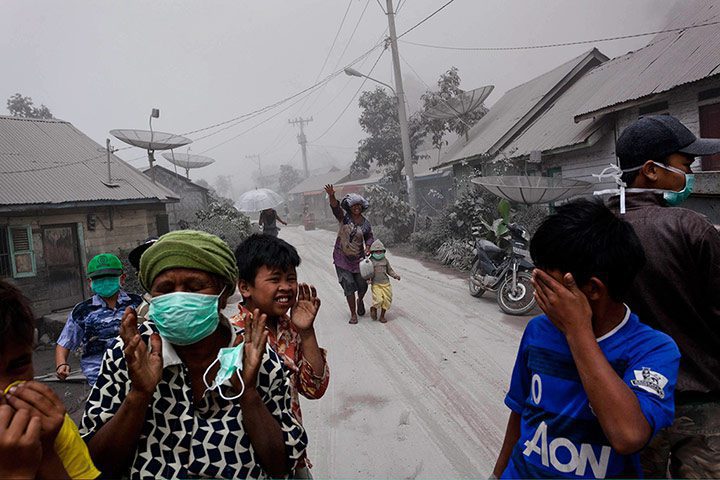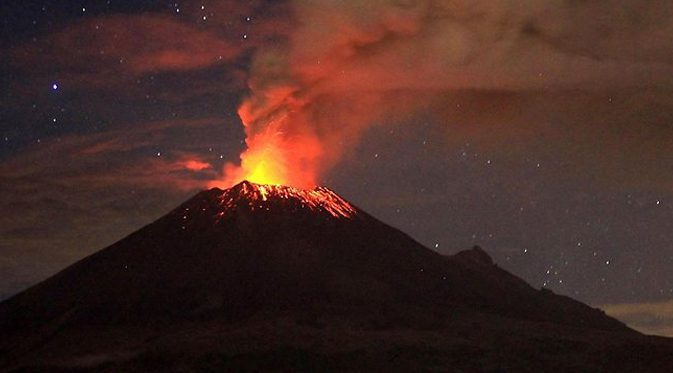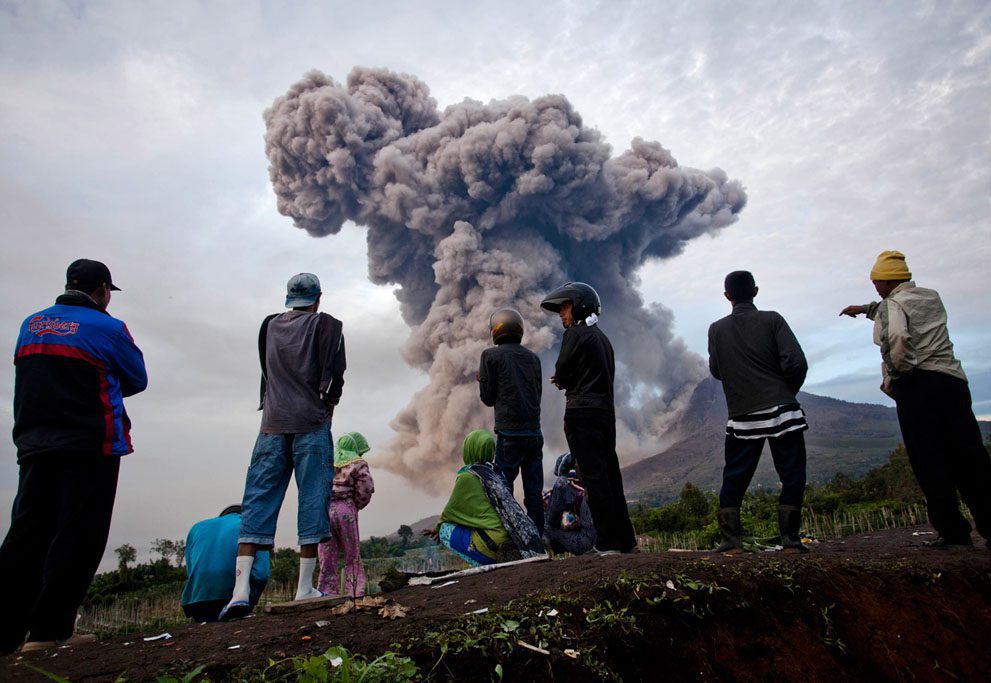Salvation Army working with the government to house and aid people
By James Cocker, Major –
Volcanic eruptions are nothing new for Indonesia, home to more than 180 volcanoes.
 However, the eruption of Mount Sinabung on the island of Sumatra, Sept. 15, 2013, caused unprecedented damage and loss of life.
However, the eruption of Mount Sinabung on the island of Sumatra, Sept. 15, 2013, caused unprecedented damage and loss of life.
Since its eruption more than five months ago, The Salvation Army Indonesia Territory has been hard at work. On Jan. 17, the volcano erupted for a second time, causing even more trauma and confusion. Just days before the second eruption, authorities gave permission for thousands of villagers who were evacuated in September to return to their villages.
The loss of life from the second eruption included 14 school children. The strain of a five-month catastrophe has placed extreme hardship on the resources of the Army’s “Compassion in Action” teams and local corps. For some soldiers and officers, their buildings and homes are destroyed.
More than 30,000 people are currently homeless and living in temporary shelters and tents run by the government and The Salvation Army, who are working together in this massive mission of aid. To date, the Army has assisted more than 10,000 refugees with temporary housing, food, facemasks and medical aid, along with emotional and spiritual guidance.
Statistics show that the Army has provided trauma counseling to more than 6,000 individuals and medical care for respiratory issues and burns for 700 more. Even after five months, the temporary tent shelters still have more than 5,500 people living in and receiving services directly from the Army.
Major Early Agustine Putra Yasa, a registered nurse and corps officer in the North Sumatera Division with her husband, is directing the Army’s medical team.
“The needs of the people will continue for a very long time along with the relocation of those affected and the building of new housing,” she said.
 The trail of destruction covered such a large area that many villages were completely destroyed. Roofs have collapsed in homes, schools and businesses and fires are burning across the lush landscape. The Army pledged to help rebuild once the area is deemed safe again.
The trail of destruction covered such a large area that many villages were completely destroyed. Roofs have collapsed in homes, schools and businesses and fires are burning across the lush landscape. The Army pledged to help rebuild once the area is deemed safe again.
Indonesia is also a country that depends heavily on agriculture. The island of Sumatra is a major exporter of palm oil, coffee and rice. More than 30 percent of this nation’s total agricultural exports are grown on this island—coffee being the major commodity shipped to America. Total fields and farms and acres of agricultural land were destroyed. Much of the unaffected land is being ignored by owners in fear of another eruption. Even the cattle have lost grazing land and have had to be slaughtered prematurely or suffer loss from burning fields.
The nation of Indonesia also has the largest population of Muslims anywhere in the world—nearly 80 percent of the population are practicing Muslims. Thus, a disaster of this magnitude provides opportunity for the Army’s spiritual message to be subtly shared. At one of the many tent shelters the Army operated, a Muslim man said, “Even though we are not of the same faith I thank God for The Salvation Army, that you help us in our trouble.”
In many of its tent shelters the Army is now conducting Sunday schools and regular church services and special singing classes for the children. Because of the love of officers and soldiers who are reaching across faith lines, people are coming to know Christ.
The volcano eruption caused an unprecedented rainy season with major flooding and the awakening of a second dormant volcano on the Island of Java in early February, raining ash and dust down on the territorial headquarters and surrounding area.
As the Army continues to serve people in Indonesia, it is also proposing projects to help with the long-term recovery of the local economy and relocation of thousands affected by the disaster. However, land is not cheap and the economic strain on this island nation arm of The Salvation Army will be stretched in ways they are barely prepared for.












